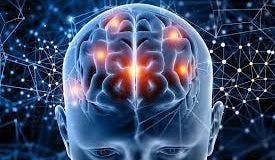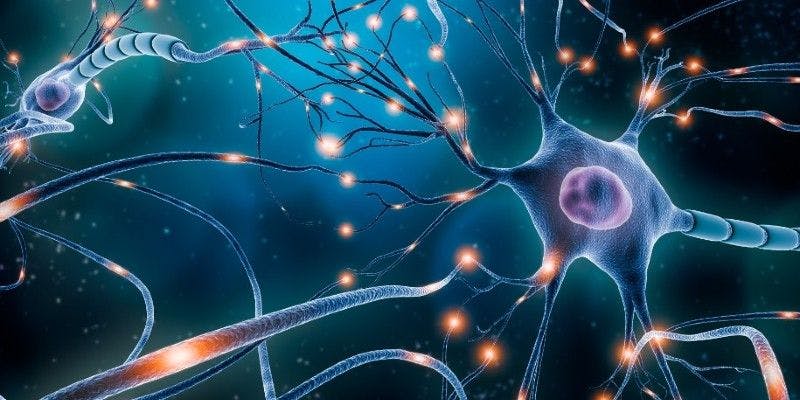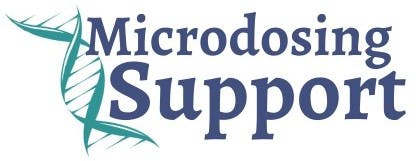How do psilocybe mushrooms act on the brain?

We are currently experiencing a resurgence of interest in psilocybin both in clinical research and alternative medicine. Microdosing is of particular interest, as a means to improve overall well-being and mental health. Psilocybin, the active compound found in psilocybe mushrooms, has a long and fascinating history of use for both spiritual and therapeutic purposes. These mushrooms, also known as ‘magic mushrooms’, have been used by indigenous cultures for centuries to induce altered states of consciousness and facilitate spiritual experiences.
Serotonin is the well-known neurotransmitter found to play a crucial role in regulating mood, emotions, and cognitive processes. The importance of serotonin was discovered during the first period of clinical research into psychedelics, in the 1950’s and 1960’s. Psilocybin acts on the brain by binding to serotonin receptors, particularly the 5-HT2A receptors. When psilocybin attaches to these receptors, it modulates the activity of the serotonin system, leading to a variety of effects on perception, mood, and cognition.
While the exact mechanisms of action are still not fully understood, it is believed that psilocybin's effects are due to its ability to increase the connectivity and communication between different regions of the brain. This increased connectivity may result in a temporary dissolution of the default mode network (DMN), which is a network of brain regions associated with self-referential thinking and the narrative of the self. By quieting the DMN, psilocybin may allow for new perspectives and insights to emerge.
The effects of psilocybin are highly dose-dependent. At higher doses, psilocybin can induce profound and intense psychedelic experiences, often referred to as "trips." These experiences can be transformative and have been reported to promote spiritual insights, mystical experiences, and a sense of connectedness. However, for the purpose of microdosing, much lower doses are used, typically below the threshold for inducing psychedelic effects.
In this article, we delve deeper into the potential benefits of psilocybe mushrooms for depression, how they work in the brain, their impact on serotonin and dopamine, and what happens when we take microdoses of these remarkable fungi. With this additional understanding, we can gain insight into the therapeutic potential of psilocybin microdosing and how it may contribute to our overall well-being.
Are psilocybe mushrooms good for depression?
Depression is a complex and debilitating mental health condition that affects millions of people worldwide. Traditional treatments for depression include psychotherapy and various medications, such as selective serotonin reuptake inhibitors (SSRIs). However, these treatments may not be effective for everyone, and some individuals experience undesirable side effects.
In recent years, there has been growing interest in exploring the potential of psilocybin, including microdosing with psilocybe mushrooms, as a novel approach to treating depression. Preliminary research and systematic review reports suggest that psilocybin may offer unique benefits in alleviating symptoms of depression and improving overall well-being.
One of the reasons psilocybe mushrooms may be beneficial for depression is their ability to induce profound and meaningful experiences. Many individuals who have undergone psychedelic experiences with psilocybin report a sense of interconnectedness, awe, and a shift in perspective that can lead to increased self-awareness and personal growth. These experiences may help individuals break free from negative thought patterns and gain new insight into their lives, potentially leading to a reduction in depressive symptoms.
Moreover, psilocybin has been found to have neuroplasticity-promoting effects. Neuroplasticity refers to the brain's ability to reorganize and form new neural connections. In individuals with depression, there may be disruptions in neural circuits involved in mood regulation and emotional processing. Psilocybin has been shown to increase neuroplasticity, potentially enabling the brain to rewire itself and create new pathways that support improved emotional well-being.
It's important to note that while there is promising evidence suggesting the potential benefits of psilocybin for depression, more rigorous scientific studies are still needed to establish its safety and efficacy. The field of psychedelic research is rapidly evolving, and ongoing clinical trials are exploring the therapeutic applications of psilocybin in various mental health conditions, including depression.
If you are considering using psilocybin or microdosing with psilocybe mushrooms for depression, it is crucial to do so under the guidance of a qualified professional. Therapists experienced in psychedelic-assisted therapy can provide a safe and supportive environment, helping individuals navigate their journeys and integrate the experiences into their lives effectively.
In the next sections of this article, we discuss how psilocybe mushrooms work for depression, exploring the underlying mechanisms and potential therapeutic effects. Understanding the science behind psilocybin's action on the brain can provide valuable insight into its potential as a treatment option for depression.
How do psilocybe mushrooms work for depression?
It is thought that the therapeutic potential of psilocybe mushrooms for depression lies in their ability to modulate brain activity and promote positive changes in mood and cognition. While the exact mechanisms are still being studied, several factors contribute to their potential antidepressant effects.
One key aspect is the interaction of psilocybin with serotonin receptors in the brain. Serotonin is a neurotransmitter known to regulate mood, and disruptions in the serotonin system have been implicated in depression. Psilocybin binds to serotonin receptors, particularly the 5-HT2A receptors, leading to increased serotonin transmission and modulation of serotonin pathways. This modulation may help alleviate depressive symptoms by restoring proper serotonin function and promoting a more balanced mood.
Another factor is the impact of psilocybin on neural connectivity. Neuroimaging studies have shown that psilocybin increases connectivity between brain regions that are typically less connected, allowing for novel and more flexible patterns of information processing. This increased connectivity may break through the rigid patterns of thinking and emotional processing often seen in depression, providing an opportunity for individuals to gain new perspectives and release negative thought patterns.
Psilocybin also influences the default mode network (DMN), a network of brain regions associated with self-referential thinking and the sense of ego. In depression, the DMN can be overactive, leading to rumination, negative self-focus, and a sense of being stuck. Psilocybin has been shown to temporarily reduce the activity and connectivity of the DMN, potentially disrupting negative thought loops and promoting a more expansive and connected state of mind.
Furthermore, psilocybin can induce neuroplasticity, the brain's ability to rewire and adapt. Studies have demonstrated that psilocybin increases the growth of new neurons and enhances synaptic plasticity, which may contribute to the antidepressant effects. By facilitating neuroplasticity, psilocybin may help the brain reorganize itself, creating new pathways for positive emotions and reducing the impact of negative ones.
While the research on psilocybin for depression is still in its early stages, the results are promising. Several clinical trials have shown significant reductions in depressive symptoms and improvements in overall well-being following psilocybin-assisted therapy. However, it's essential to remember that each individual's response may vary, and the effects of psilocybin should be considered within a comprehensive treatment plan that includes therapy, lifestyle changes, and ongoing support.
Does psilocybin microdosing increase serotonin and release dopamine?
Psilocybin microdosing is a technique that involves taking sub-perceptual doses of psilocybe mushrooms on a regular schedule. While the primary aim of microdosing is not to induce psychedelic experiences. There is evidence to suggest that it can influence the levels of serotonin and dopamine in the brain, two neurotransmitters that play crucial roles in mood regulation and motivation.

Serotonin, often referred to as the "feel-good" neurotransmitter, is involved in various physiological and psychological processes, including mood, appetite, and sleep. Research suggests that psilocybin may increase serotonin levels in the brain, leading to a temporary elevation in mood and a sense of well-being. This increase in serotonin transmission may contribute to the reported mood-enhancing effects of microdosing.
Dopamine, on the other hand, is associated with motivation, reward, and pleasure. It is known to play a critical role in regulating the brain's reward system and is implicated in conditions such as depression and addiction. While the direct effects of psilocybin on dopamine are still not fully understood, some studies suggest that it may indirectly influence dopamine release and activity. The changes in brain connectivity and modulation of serotonin receptors caused by psilocybin may indirectly impact the dopamine system, leading to potential enhancements in motivation and positive affect.
It's important to note that the effects of psilocybin on serotonin and dopamine are complex and context-dependent. The precise mechanisms through which psilocybin modulates these neurotransmitters are still under investigation. Additionally, the effects of microdosing may vary between individuals, and the dosage and frequency of microdosing regimens may influence the extent of neurotransmitter modulation.
While the increase in serotonin and potential modulation of dopamine are intriguing, it's crucial to understand that psilocybin microdosing is not a panacea for mental health issues. It should be seen as part of a comprehensive approach that includes therapy, self-care practices, and a healthy lifestyle. Moreover, the effects of psilocybin microdosing are highly individual, and its efficacy in treating specific conditions such as depression is still being researched.
What happens to the brain when we take microdoses of psilocybe mushrooms?
When we take microdoses of psilocybe mushrooms, several neurobiological changes occur in the brain that contributes to the potential therapeutic effects. While the specific mechanisms are still being studied, research has provided insights into the following changes:
- The modulation of brain connectivity: Psilocybin, even in microdose amounts, has been shown to increase the connectivity between different regions of the brain that are not typically strongly connected. This increased connectivity may facilitate communication between brain networks that are involved in cognition, emotion, and self-awareness. It can promote flexible thinking, enhance creativity, and allow for new insights and perspectives to emerge.
- The activity and connectivity of the default mode network (DMN): The DMN is a network of brain regions that is active during self-referential thinking, mind-wandering, and daydreaming. In conditions like depression, the DMN can be overactive, leading to rumination and negative thought patterns. By reducing the activity of the DMN, microdosing may disrupt negative thought loops and increase the capacity for present-moment awareness, which can contribute to improved mental well-being.
- Neuroplasticity appears to be involved in the effects of microdosing: Psilocybin has been shown to promote the growth of new neurons and enhance synaptic plasticity, the ability of neurons to form new connections. This neuroplasticity may facilitate the rewiring of neural circuits involved in mood regulation and emotional processing, potentially leading to long-term improvements in mental health outcomes.
It's worth mentioning that the effects of microdosing can vary between individuals. Factors such as dosage, frequency, and individual brain chemistry can influence the efficacy of the specific changes observed. This makes It’s essential to approach microdosing with caution and under the guidance of a qualified professional who can provide personalized recommendations based on an individual's needs and goals.
At Microdosing Support, our team of qualified therapists is dedicated to providing high-quality care and guidance for individuals interested in exploring psilocybin microdosing as a tool for improving mental health and well-being.
- We offer personalized and evidence-based approaches
- Our therapists have extensive experience in working with psychedelics therapeutically to insure appropriate set and setting.
- Personalized dosing protocols
- Preparation and integration techniques
- Therapeutic guidance
- Ensuring a safe and effective microdosing experience
If you are interested in exploring psilocybin microdosing for personal growth and well-being, we invite you to reach out to us to learn more about our services and how we can help.
